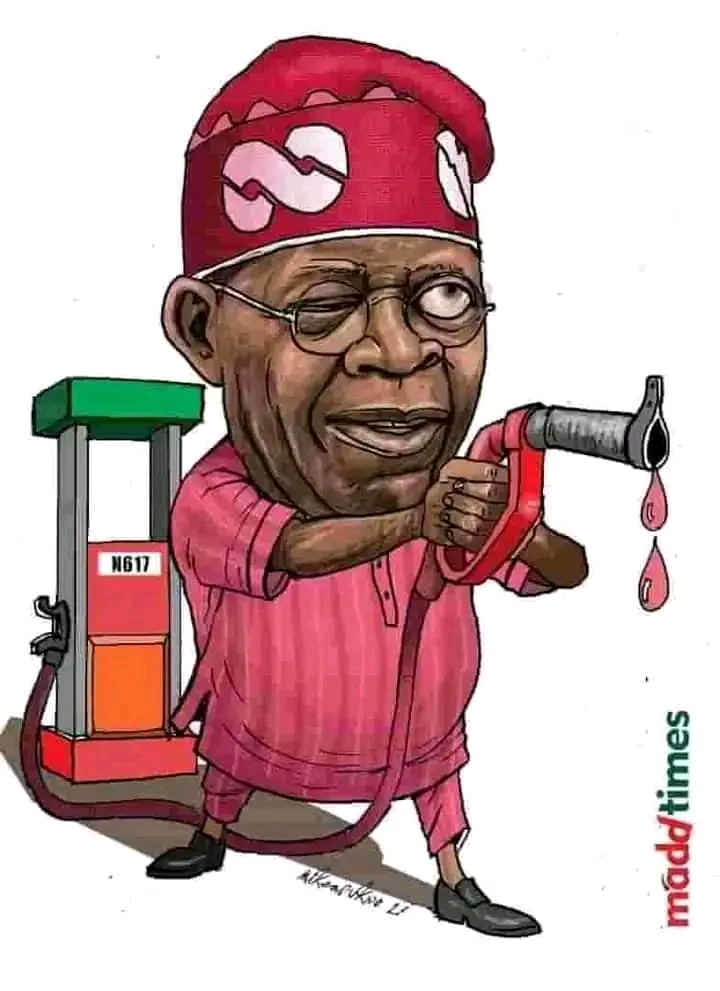

The Unbearable Burden
NNOLI SYLVESTER CHIKELUE@sylvesternnoli140312
1 year ago
#neighbors
📍Nigeria, Nigeria
Addressing the Economic Hardships in Nigeria:
In recent years, the Nigerian economy has encountered numerous challenges that have left many citizens facing the harsh realities of daily life. The escalating cost of living, worsened by the ongoing rise in oil pump prices, has created an overwhelming burden for ordinary Nigerians. With the government seemingly taking a backseat, it is crucial to delve into these urgent issues and suggest practical steps that can help ease the struggles of the populace.
The Rising Cost of Living
The cost of living in Nigeria has been steadily climbing. Essential goods, transportation, and basic services are becoming increasingly out of reach for many families. The daily hikes in oil prices serve as a catalyst for this inflation, causing a ripple effect throughout various sectors of the economy. As fuel prices escalate, transportation costs increase, resulting in higher prices for goods and services. This relentless cycle disproportionately impacts low and middle-income earners, who are already living on the brink.
The Government's Role
It is vital for the government to acknowledge its responsibility in tackling these economic challenges. While it may be tempting to blame external factors like global oil prices and inflation, proactive measures can be implemented to lessen the impact on the population. Here are several actions the government should consider:
1. Subsidize Fuel Prices: Introducing temporary fuel subsidies could offer immediate relief to citizens grappling with rising transportation costs. Although this may put a strain on government finances in the short term, it is essential for stabilizing the economy and safeguarding vulnerable communities.
2. Invest in Public Transport: Enhancing public transportation infrastructure can reduce dependence on personal vehicles, ultimately lowering fuel consumption and costs. By investing in efficient, affordable public transport systems, the government can ease the burden on citizens while promoting a more sustainable urban environment.
3. Diversify the Economy: The Nigerian economy's heavy reliance on oil has left it vulnerable to price shocks. The government should prioritize diversifying the economy by investing in sectors such as agriculture, technology, and renewable energy. This will create jobs, improve food security, and reduce the economy's dependence on oil revenues.
4. Strengthen Social Safety Nets: Establishing and expanding social safety net programs can provide immediate support to those in need. This includes cash transfers, food assistance, and affordable healthcare services. By ensuring that the most vulnerable populations are protected, the government can foster a more resilient society.
5. Encourage Local Production: Supporting local industries through grants, loans, and training programs can stimulate economic growth and reduce the reliance on imports. By promoting homegrown products, the government can empower local businesses and create jobs while also stabilizing prices.
A Call to Action
The time for action is now. The government must prioritize the welfare of its citizens and take decisive steps to ease the economic hardships faced by the masses. By implementing these recommendations, Nigeria can transform its economic landscape, ensuring that the burden of rising costs is shared more equitably among its people.
In conclusion, the Nigerian economy is facing a crucial moment. The rising oil prices and the resulting increase in the cost of living present serious challenges that must be addressed. The government has a duty to respond quickly and effectively to ease the hardships faced by its citizens. By implementing a comprehensive strategy that includes subsidies, infrastructure investment, economic diversification, social safety nets, and support for local production, Nigeria can create a path toward a brighter and more prosperous future for everyone.
SYLVESTER NNOLI
#Motivation
#Hellonircle
#Readmynircleblog
#ArtofArtist
#Leaening
#Followme
#Neighbors
#poadcast
#NircleCommunity
#NircleForums
#Africa
#citizenjournalist

